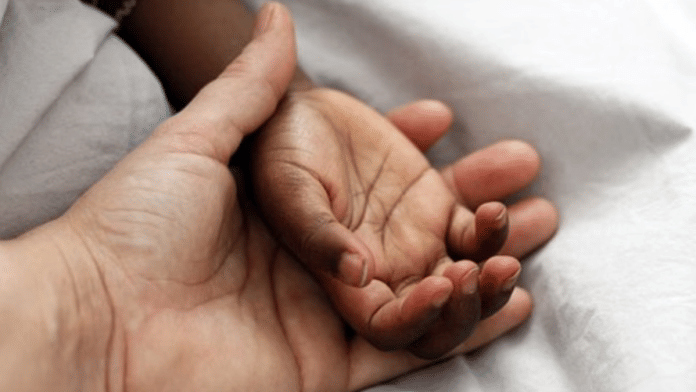New Delhi: When Delhi resident Mohammad Wasi moved to Nigeria in 2020 to work for a private company, he didn’t realise then how it would change his life.
During his time in Nigeria, he developed a strong bond with his cook’s two-and-a-half-year-old son. Wasi then asked the parents if he could adopt the child, and they agreed as they were not in a position to provide for their son financially.
In January 2022, the Chief Magistrate’s Court of Lagos State appointed him as the Nigerian child’s legal guardian. In April last year, a Nigerian court allowed the final adoption of Master Owode Abdulsommod Olamide.
But more than three years after he became the boy’s legal guardian, Wasi still hasn’t been able to bring the child home because of an impasse over clearing his documents. Wasi says his adopted Nigerian son’s case is stuck as India’s Central Adoption Resource Authority (CARA) has been delaying the process, even though laws give the Indian High Commission the power to issue visas or OCIs for adopted foreign children.
On Monday, the Delhi High Court asked CARA to file its written submissions after Wasi petitioned the court, accusing the adoption agency of dragging its feet. All eyes are now on CARA, which is expected to file its response when the matter is heard next on 21 August.
Wasi’s troubles began when he applied for an Indian visa for the child in August 2022, after he officially became the legal guardian, so he could introduce his son to his family.
However, despite submitting all documents and paying the visa fee, the Indian High Commission orally advised Wasi to complete the legal adoption formalities of his Nigerian son, and only after could they issue him a visa for travel to India.
Nearly seven months after the formal adoption, Wasi requested the Indian High Commission in Nigeria for his son’s visa and Overseas Citizenship of India (OCI) status. It was his second request.
The High Commission told him that it had sought a response twice from CARA, the government body that regulates domestic and international adoptions, but it had received no reply.
Wasi then approached the High Court, accusing the adoption agency of a “lackadaisical approach” in his case. He said he wanted to travel to India with his adopted son, now five years old, so that his legal rights could “crystallise” according to Indian laws.
Since the adoption had not been recognised in India, Wasi contended that he was unable to extend benefits like health insurance to his son. He added that in case of unexpected repatriation, he wouldn’t be able to take his son with him.
Wasi said he mailed CARA in May, asking the adoption authority to issue a No Objection Certificate so that his son could be issued an OCI card and Indian passport and to enable his legal rights to come into effect under Indian laws. When CARA did not respond, Wasi decided to move court.
Also Read: Should ex-spouse’s consent be required for new partner to adopt your child? Plea in SC raises issue
What does the law say
The plea invoked Regulation 23(3) of the CARA Regulations, which allows a child adopted abroad by Indian citizens, having a foreign passport, to apply for an Indian visa or OCI card through the Indian High Commission in that country. After checking all documents, the Indian High Commission may allow the child entry.
Essentially, the petitioners argued that this provision empowers the Indian High Commission to issue a visa and an OCI card to a child of foreign origin adopted by an Indian parent in line with the governing laws of the child’s country of origin.
Apart from this, the petitioner also cited Regulation 23(2) of the Adoption Rules, 2022, which states that after receiving a report on the prospective adoptive parents and their supporting documents, the authorities shall issue the approval required in such cases of adoption.
Articles 5 and 17 of the Hague Convention on Inter-Country Adoption were also invoked, saying that India had ratified it in 2003. Under these provisions, the receiving country’s government has to determine if the prospective adoptive parents are eligible to adopt and to ensure the child’s entry and residence.
The plea said that CARA had failed to comply with the governing procedure for adoption of a foreign child, but pointed out that Nigeria had not signed the Hague Convention.
Relying on the Karnataka High Court’s 2023 ruling in Ravi Kumar vs. CARA, the petitioners said that there is no law in India right now that recognises cross-country adoption of a foreign child from a country that is not a signatory to the Hague Convention. `
(Edited by Sugita Katyal)






